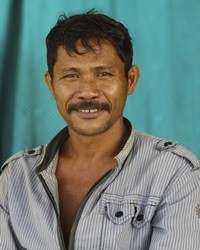Buol in Indonesia

Photo Source:
Copyrighted © 2026
Anonymous All rights reserved. Used with permission |
Send Joshua Project a map of this people group.
|
| People Name: | Buol |
| Country: | Indonesia |
| 10/40 Window: | Yes |
| Population: | 118,000 |
| World Population: | 118,000 |
| Primary Language: | Buol |
| Primary Religion: | Islam |
| Christian Adherents: | 0.01 % |
| Evangelicals: | 0.00 % |
| Scripture: | Portions |
| Ministry Resources: | No |
| Jesus Film: | Yes |
| Audio Recordings: | Yes |
| People Cluster: | Kaili-Tomini of Sulawesi |
| Affinity Bloc: | Malay Peoples |
| Progress Level: |
|
Introduction / History
The history of the Buol region is one of the rise and fall of small kingdoms and their occasional confederation into larger entities for defense and conquest. Sometimes the Buol are treated as a subgroup of the Gorontalo due to cultural and linguistic similarities. There is not a good road system in this area, so most contact among the Buol is by sea, as the Sulawesi Sea borders the area. Even though the various Buol villages are limited in their contact, they still maintain a sense of unity as a people group. They are united by language and cultural practices.
What Are Their Lives Like?
Most earn a living as rice farmers.
What Are Their Beliefs?
Most Buol have embraced Islamic teachings and this has greatly influenced their lives. Despite this, traditional animistic beliefs are still strong in daily life.
What Are Their Needs?
Access to the Buol area by outsiders is difficult.
Prayer Points
There are a few Buol individuals who identify themselves as Christians. Ask God to give them fresh ways to fellowship together and also with their Gorontalo brothers and sisters.
Since there are more believers in the neighboring and similar Gorontalo group, pray that those believers will look not only to their own spiritual need, but also to the needs of the Buol.
Forestry, fishing and tourism have the greatest potential for further economic development of the Buol region. Pray that God will guide the people in this area and keep them wise in their decisions, especially in the area of transportation facilities.
Ask God to prepare the hearts of the Buol to learn about Him as well as for the other areas of their lives that may change drastically.
Ask God to open the hearts of professing Muslims, as well as those who maintain traditional animistic beliefs, that they will want to learn of the love and hope Christ can bring.
References